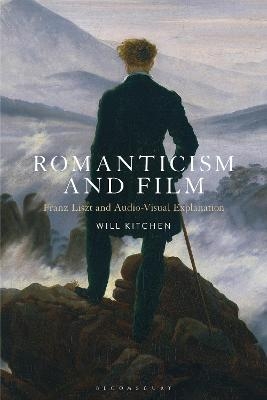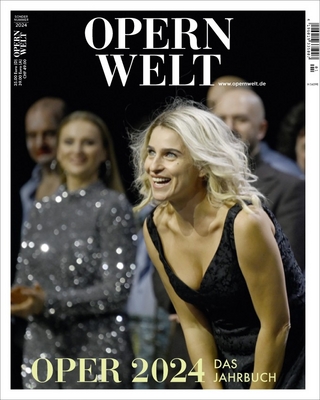
Romanticism and Film
Franz Liszt and Audio-Visual Explanation
Seiten
2022
Bloomsbury Academic USA (Verlag)
978-1-5013-7095-3 (ISBN)
Bloomsbury Academic USA (Verlag)
978-1-5013-7095-3 (ISBN)
The relationship between Romanticism and film remains one of the most neglected topics in film theory and history, with analysis often focusing on the proto-cinematic significance of Richard Wagner’s music-dramas. One new and interesting way of examining this relationship is by looking beyond Wagner, and developing a concept of audio-visual explanation rooted in Romantic philosophical aesthetics, and employing it in the analysis of film discourse and representation.
Using this concept of audio-visual explanation, the cultural image of the Hungarian pianist and composer Franz Liszt, a contemporary of Wagner and another significant practitioner of Romantic audio-visual aesthetics, is examined in reference to specific case studies, including the rarely-explored films Song Without End (1960) and Lisztomania (1975).
This multifaceted study of film discourse and representation employs Liszt as a guiding-thread, structuring a general exploration of the concept of Romanticism and its relationship with film more generally. This exploration is supported by new theories of representation based on schematic cognition, the philosophy of explanation, and the recently-developed film theory of Jacques Rancière.
Individual chapters address the historical background of audio-visual explanation in Romantic philosophical aesthetics, Liszt’s role in the historical discourses of film and film music, and various filmic representations of Liszt and his compositions. Throughout these investigations, Will Kitchen explores the various ways that films explain, or ‘make sense’ of things, through a ‘Romantic’ aesthetic combination of sound and vision.
Using this concept of audio-visual explanation, the cultural image of the Hungarian pianist and composer Franz Liszt, a contemporary of Wagner and another significant practitioner of Romantic audio-visual aesthetics, is examined in reference to specific case studies, including the rarely-explored films Song Without End (1960) and Lisztomania (1975).
This multifaceted study of film discourse and representation employs Liszt as a guiding-thread, structuring a general exploration of the concept of Romanticism and its relationship with film more generally. This exploration is supported by new theories of representation based on schematic cognition, the philosophy of explanation, and the recently-developed film theory of Jacques Rancière.
Individual chapters address the historical background of audio-visual explanation in Romantic philosophical aesthetics, Liszt’s role in the historical discourses of film and film music, and various filmic representations of Liszt and his compositions. Throughout these investigations, Will Kitchen explores the various ways that films explain, or ‘make sense’ of things, through a ‘Romantic’ aesthetic combination of sound and vision.
Will Kitchen is Teaching Fellow in Film Studies at the University of Southampton, UK. He is Academic Editor for the journal Romance, Revolution and Reform.
Introduction
1.Culture and Transcendence: Three Explanations of Romanticism
2.The Archaeology of Film Music: Wagner, Liszt and the Symphonic Poem
3.Audio-Visual Explanations of Franz Liszt and His Music: Cultural Image and Schematic Types
4.‘Nothing untrue, simply convenient’: Song Without End (1960) and the Hollywood Composer Biopic
5.‘Piss off, Brahms!’: Lisztomania (1975) and Ken Russell in 1975
Conclusion
Appendix A. Music and Language
Appendix B. Wagnerian Terminology and Film
Bibliography
Index
| Erscheinungsdatum | 16.01.2021 |
|---|---|
| Zusatzinfo | 18 bw illus |
| Verlagsort | New York |
| Sprache | englisch |
| Maße | 152 x 229 mm |
| Themenwelt | Kunst / Musik / Theater ► Film / TV |
| Kunst / Musik / Theater ► Musik ► Klassik / Oper / Musical | |
| Sozialwissenschaften ► Kommunikation / Medien ► Medienwissenschaft | |
| ISBN-10 | 1-5013-7095-2 / 1501370952 |
| ISBN-13 | 978-1-5013-7095-3 / 9781501370953 |
| Zustand | Neuware |
| Informationen gemäß Produktsicherheitsverordnung (GPSR) | |
| Haben Sie eine Frage zum Produkt? |
Mehr entdecken
aus dem Bereich
aus dem Bereich
Buch | Softcover (2024)
Der Theaterverlag - Friedrich Berlin
CHF 48,95
Mozart und der Abschied von der Aufklärung
Buch | Hardcover (2024)
C.H.Beck (Verlag)
CHF 41,90


